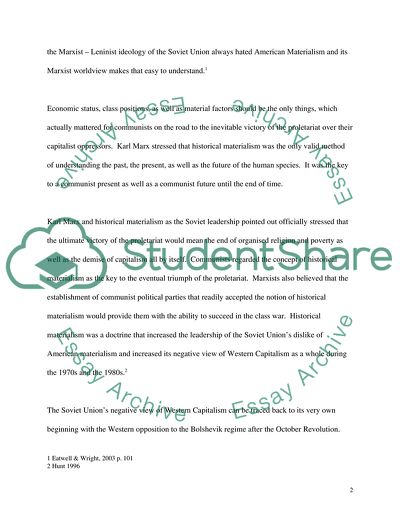Cite this document
(American Materialism and the Soviet Union's Negative View Assignment, n.d.)
American Materialism and the Soviet Union's Negative View Assignment. Retrieved from https://studentshare.org/sociology/1550427-to-what-extent-did-american-materialism-lead-to-the-soviet-unions-negative-view-of-western-capitalism-during-the-1970s-and-1980s
American Materialism and the Soviet Union's Negative View Assignment. Retrieved from https://studentshare.org/sociology/1550427-to-what-extent-did-american-materialism-lead-to-the-soviet-unions-negative-view-of-western-capitalism-during-the-1970s-and-1980s
(American Materialism and the Soviet Union'S Negative View Assignment)
American Materialism and the Soviet Union'S Negative View Assignment. https://studentshare.org/sociology/1550427-to-what-extent-did-american-materialism-lead-to-the-soviet-unions-negative-view-of-western-capitalism-during-the-1970s-and-1980s.
American Materialism and the Soviet Union'S Negative View Assignment. https://studentshare.org/sociology/1550427-to-what-extent-did-american-materialism-lead-to-the-soviet-unions-negative-view-of-western-capitalism-during-the-1970s-and-1980s.
“American Materialism and the Soviet Union'S Negative View Assignment”, n.d. https://studentshare.org/sociology/1550427-to-what-extent-did-american-materialism-lead-to-the-soviet-unions-negative-view-of-western-capitalism-during-the-1970s-and-1980s.


